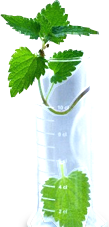



Author(s): Okolie Ngozi Paulinus* and Okugbo, Osarhieme Tinuade
ABSTRACT The effect of different processing methods on the malondialdehyde, MDA contents of 7 popular samples of fresh meat and fish eaten in Nigeria, was investigated. The MDA levels were assayed in a colorimetric reaction with thiobarbituric acid in fresh samples of beef, pork, turkey, chicken, snail, catfish and goat meat processed by boiling, frying, roasting and freezing. Results obtained showed that all processing methods led to significant increases in MDA contents of the samples studied relative to their fresh, unprocessed counterparts (p < 0.05). For most samples, boiling, roasting and freezing yielded comparable levels of MDA. However, significantly higher levels of MDA were seen in samples fried after boiling, relative to boiled samples (p < 0.05). For the boiled samples, beef and goat meat had the least MDA. The order of MDA content in the boiled samples was beef > goat meat > catfish > turkey > chicken > snail > pork. The MDA content of frozen mackerel was significantly increased by boiling and frying and by further freezing (p < 0.05). These results suggest that while all the processing methods may be unsafe, the frying of boiled meat and fish may be particularly deleterious to consumer health, in view of the wellknown mutagenic and carcinogenic effects of MDA.